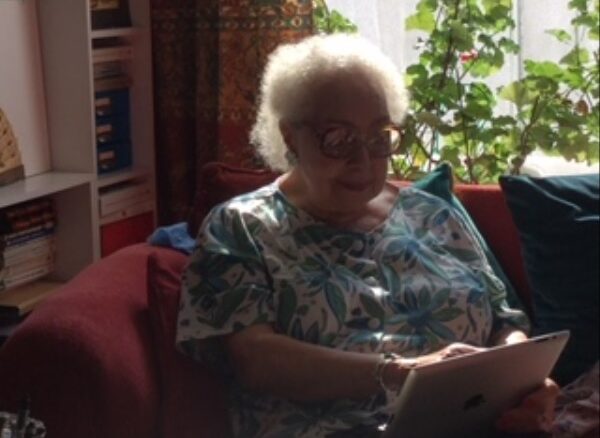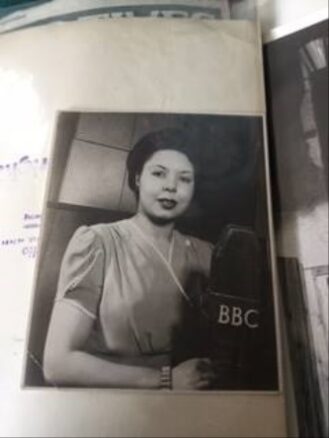
Lauretta Boston was born in October 1922 in Paddington West London. She first started playing the piano at the age of five and was inspired by her grandmother.
Lauretta first appeared in theatre Drury Lane in 1938 in a show called ‘The sun never sets’ (this was referring to the sun never setting on the British Empire because it is so vast). She was 16. She toured with that group. Later she appeared in ‘Showboat’
Whilst Lauretta was growing up her father was in Africa. Her parents never married. Lauretta‘s father came to the UK in 1922 to study law along with his brother. They both qualified and went back to Sierra Leone. Later her father became Liberian Consul general and uncle Henry her father’s brother became governor general of Sierra Leone. Lauretta grew up in the UK with her mother, but throughout this entire time she was in close contact with, and was very close to her father. Lauretta has a half-sister Christina who is a barrister.

She regularly took part in children’s hour for BBC radio and continued to be involved in broadcast throughout World War II.
She worked in entertainment for an association called ENSA (Entertainment national service association) singing shows around the country from Edinburgh to Plymouth narrowly escaping the bombing.
At the end of the war Lauretta travelled to Ireland working there for three years in theatre and ballrooms returning briefly to England when her father returned from Africa for heart surgery.
A little later she would travel to Germany to entertain the American troops before finally returning to London in the early 50s. She then toured about the theatres doing musical.
Back in London Lauretta sang at the Churchill club when she heard that they needed to singer. She was singing Latin American music with a regular band. She met Louis Armstrong, Frank Sinatra, and Paul Robeson who went to the venue during Lauretta’s time there. This was testimony to the club’s popularity.
Lauretta has got photographs and BBC contracts that were taken by the BBC when she worked on children’s hour very early on in her career. She also has a wealth of archive material from her past including photos, clothes, letters etc.
During her broadcasting career with the BBC she worked from Manchester, Bristol, London and did a lot of overseas broadcasting during the war. She appeared with Paul Robeson to celebrate Nigerian independence at Broadcasting House.

Lauretta remembers the black shirt marches just before WW2, and seeing WW1 wounded servicemen selling matches on street corners.
She was the only person of colour in the Paddington area and was the only mixed race child throughout her school years.
People used to walk up to her and rub her hair ‘for luck’. This is something that someone did to me in my early years in the 60s and I did not like it.
Lauretta is a link to people of colour going back to the 30s and can talk about her historical past and the context in which history was played out.
She would really like her story to be told. She would like her story told so we include the black narrative in the UK historical past.
Black people in the UK goes back further than the Windrush generation. Lauretta Boston was born in Queen Charlottes Hospital Marylebone, London, the daughter of the Liberian Consul General and an English mother. She is the niece of Sir Henry Lightfoot-Boston who was the Governor General of Sierra Leone. Born in 1922 she is the product of a mixed marriage and will celebrate her 100th birthday in October.
Lauretta trained in music and is an accomplished pianist. It is accurate to describe her as the black Vera Lynn. She travelled around the UK working for ENSA (National Service), entertaining troops and workers to keep moral up during the war.
She was one of the first black broadcasters on the BBC, broadcasting on Children’s’ Hour. She toured Germany, Norway and Ireland (to name a few countries) and broadcast with the great Paul Robson for a BBC overseas broadcast in celebration of Nigerian Independence.
